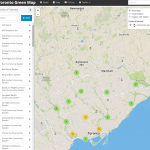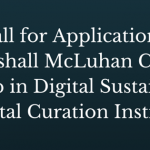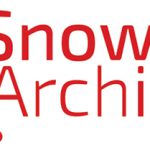Community Maps and Engagement: Lessons from designing a “Green Map” Dawn Walker Time and place: Semaphore Demo Room, Robarts first floor (1150), Tuesday, April 19, 9.30am With the increase in urban agriculture and environmental groups focused on addressing pressing issues they see in their communities, the opportunity exists to better understand what technical barriers individuals face […]
Category Archives: Uncategorized
Call for Applications to a Fellowship in Digital Sustainability
Call for Applications: The Marshall McLuhan Centenary Fellowship in Digital Sustainability at the Digital Curation Institute The DCI is calling for applications for a one-year funded Fellowship in the area of ‘digital sustainability’. Applications are due by April 20, 2016 (see below). Sustainability – the capacity to endure – has become a crucial concern of our data-intensive […]
Data Practices: Harnessing Cultural Heritage Data to Support Scholarly Practices
Join us for a talk and discussion with Prof. Unmil Karadkar at the Semaphore Demo Room at Robarts Library on March 17 , 4pm-5pm: Abstract In this talk, I will present two examples of projects that exemplify my research agenda, which synthesizes information-centered studies of scholarly work practices and user experience-centered studies for designing and evaluating software. […]
Research Data Management at IDCC16
We are pleased to be presenting our recent work on RDM at the 11th International Digital Curation Conference in Amsterdam. Identifying RDM drivers, gaps and opportunities: A baseline assessment Our study is a joint effort between researchers from the Digital Curation Institute and members of the University of Toronto Libraries (UTL) RDM Working Group, who are presently […]

Web Archive Analytics Workshop: Archiving and Accessing Ten Years of Political Websites
In association with the DCI lecture on October 29, Prof. Ian Milligan is offering a 2-hour hands-on workshop on web archive visualization on October 30.
This workshop uses the Canadian Political Parties and Political Interest Group collection to trace the web archiving workflow from collection development to analytics. Beginning with an introduction from Nicholas Worby, Government Information & Statistics Librarian at the University of Toronto’s Robarts Library, on the Archive-It dashboard and collections development process, attendees will learn about how web archiving happens from the perspective of a librarian. With Ian Milligan, a professor of digital history from the University of Waterloo, we then move into the process of accessing, downloading, and interpreting web archival data, from the UK Web Archive’s Shine portal (allowing faceted, n-gram style searches) to the warcbase platform for text and link analysis.
All software used will be open source, and will include warcbase, Shine, and Gephi.

Time and place: Friday, October 30, 10am-noon at the Semaphore Demo Room in Robarts Library, University of Toronto (room 1150).
Participation is open and free, but you need to register by emailing christoph.becker@utoronto.ca!
How to find it:


Ian Milligan: The Challenge of Digital Sources in the Web Age: Common Tensions Across Three Web Histories, 1994-2015
Abstract:
The sheer amount of social, cultural, and political information that is generated and, crucially, preserved every day presents new exciting opportunities to historians. A large amount of this information is being contained within web archives, which contain billions of web pages. Scholars broaching topics dating back to the mid-1990s will find their projects enhanced by web data – military historians can use forum posts by soldiers, social historians can track aspects of everyday life through blogs and comments, political historians can study changing sentiment, tropes, and link structures, and economic historians can explore the rise and fall of businesses webpages. Yet this tremendous opportunity is mitigated to some degree by the sheer challenge of dealing with all that data: we have more information than ever before, but the scale is overwhelming.
We have several common tensions, however, beyond basic ones of having enough storage and computational power to deal with all of this information. I will focus on two. The first is that while historians largely want to work with content, technological limitations push us towards rich metadata. The second is that without basic understanding of the conceptual structure of the web archive, from crawl structure to the biases, we can generate wildly misleading results – a problem for historians with most digitized sources.
In this talk, I explore these tensions as they have played out over three case studies that I have studied: the Internet Archive’s March-December 2011 Wide Web Scrape (WARC files), the 2009 GeoCities end-of-life torrent (a wget-compiled collection of mirrored websites), and the 2005-Present Archive-It collections of Canadian political parties, unions, and organizations (WAT files, which contain derivative data). For each archive, I briefly discuss the usage, technical, and ethical challenges that such collections present for historians: problems of too much data, processing time, and the difficulties in applying cutting-edge natural language processing.
Biography:
Ian Milligan is an assistant professor of digital and Canadian history at the University of Waterloo. There, he is principal investigator of the web archives for historical research group (https://uwaterloo.ca/web-archive-group/), which is supported by an Ontario Early Researcher Award and SSHRC. Milligan serves as a co-editor of the Programming Historian (programminghistorian.org). He has published several articles looking at the impact of born-digital sources on historians and has a forthcoming co-authored book, Exploring Big Historical Data: The Historians’ Macroscope on digital methods with Imperial College Press. His first book, Rebel Youth: 1960s Labour Unrest, Young Workers, and New Leftists in English Canada, appeared in 2014.
The lecture takes place at 16:00-17:30 on Thursday, 29th of October 2015, in Room 728 (7th floor) at the iSchool, Bissell Building, 140 St. George Street.
Prof. Milligan is also conducting a 2-hour hands-on Workshop on web archive visualization on October 30!
5 comments on the Statement of Principles on Data Management
The Canadian Institutes of Health Research (CIHR), the Natural Sciences and Engineering Research Council of Canada (NSERC), and the Social Sciences and Humanities Research Council of Canada (SSHRC) (“the Agencies”) recently released a Draft Tri-Agency Statement of Principles on Digital Data Management that is worth reading. It is good to see movement on this in Canada, and […]
Digital Objects, Networked Experiences: Best poster at the PhD research days
Digital Objects, Networked Experiences wins Best Poster award at the iSchool PhD Research Days 2015 Congratulations to Emily Maemura, PhD student at the iSchool and researcher at the Digital Curation Institute! The poster is rather tricky to appreciate online, as you can see below – click the image for a large version. It plays with the […]
The Snowden Archive launches
START SEARCHING The official launch of the Snowden Archive, “Snowden Live: Canada and the Security State,” featuring a Q&A with Edward Snowden, takes place on Wednesday, March 4, at Ryerson University in Toronto. The event is sold out, but will be live streamed on cbcnews.ca. More event details at cjfe.org/asksnowden About the Snowden Archive The Snowden […]
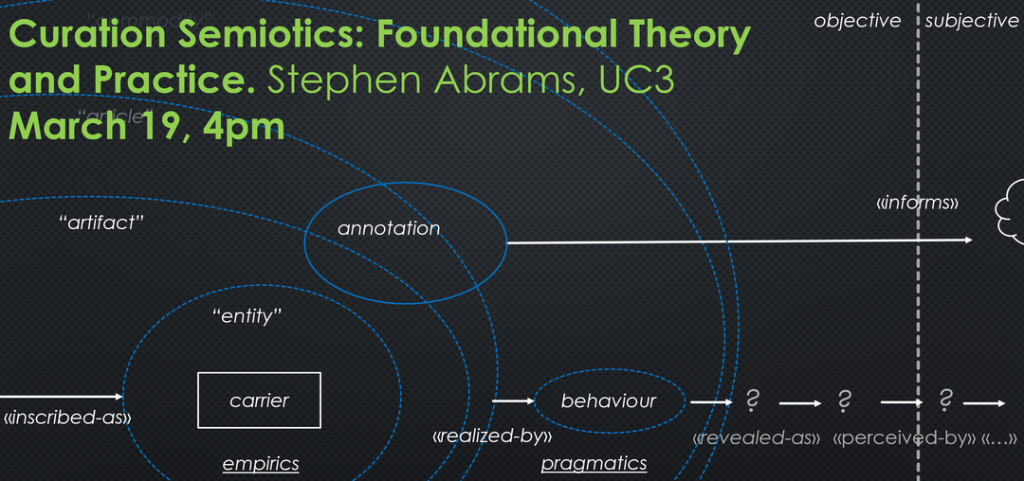
Stephen Abrams: Curation Semiotics – Foundational Theory and Practice
Stephen Abrams speaks in the DCI lecture series in March 2015.
The lecture takes place at 16:00-17:30 on Thursday, March 19, in room 728 (7th floor) at the iSchool, Bissell Building, 140 St. George Street.
NOTE: We will broadcast the event on youtube: See the corresponding event page !
Curation Semiotics: Foundational Theory and Practice
Digital curation is a complex of actors, policies, practices, and technologies that enables meaningful consumer engagement with content of interest across space and time. The UC Curation Center (UC3) at the California Digital Library (CDL) supports a growing roster of innovative curation services for use by scholars across the 10 campus University of California system. However, recent initiatives in the area of research data curation have led to a significant change in UC3’s target audience. While UC3 continues to support its traditional campus stakeholders – librarians, archivists, and curators – it is now also engaging directly with faculty, researchers, and students.
In response, UC3 has embarked on a comprehensive review of its systems and services to ensure that it is meeting its goals most effectively. In doing so, however, a number of seemingly simple, yet deceptively difficult to answer questions cropped up almost immediately. What constitutes the full spectrum of scholarly activities for which curation support may be usefully offered? What does “preservation” mean for the new genre of research objects (or indeed, for “traditional” content)? While curation practitioners can draw upon a number of useful frameworks for specific areas of concern, for example, the Open Archival Information System (OAIS), Trusted Repositories Audit and Certification (TRAC), Preservation Metadata Implementation Strategies (PREMIS), etc., it is not clear how, or indeed whether, their underlying conceptual models cohere into a comprehensive and unified view of the curation domain. For example, many of the concepts at the heart of these standards, perhaps most problematically, “digital object”, remain woefully overloaded and under-formalized.
UC3 has developed a new model of the curation domain to provide a comprehensive, self-consistent conceptual foundation for the planning and evaluation of its activities (https://wiki.ucop.edu/display/Curation/Foundations). While drawing from many prior digital library efforts, it also incorporates relevant concepts from other disciplines. Most notably, the model considers digital content in terms of five semiotic dimensions of semantics, syntactics, empirics, pragmatics, and dynamics. This presentation will examine UC3’s role as a curation services provider within a digital age research university and the use of its domain model in decision-making processes regarding its programmatic mission, services, and initiatives.
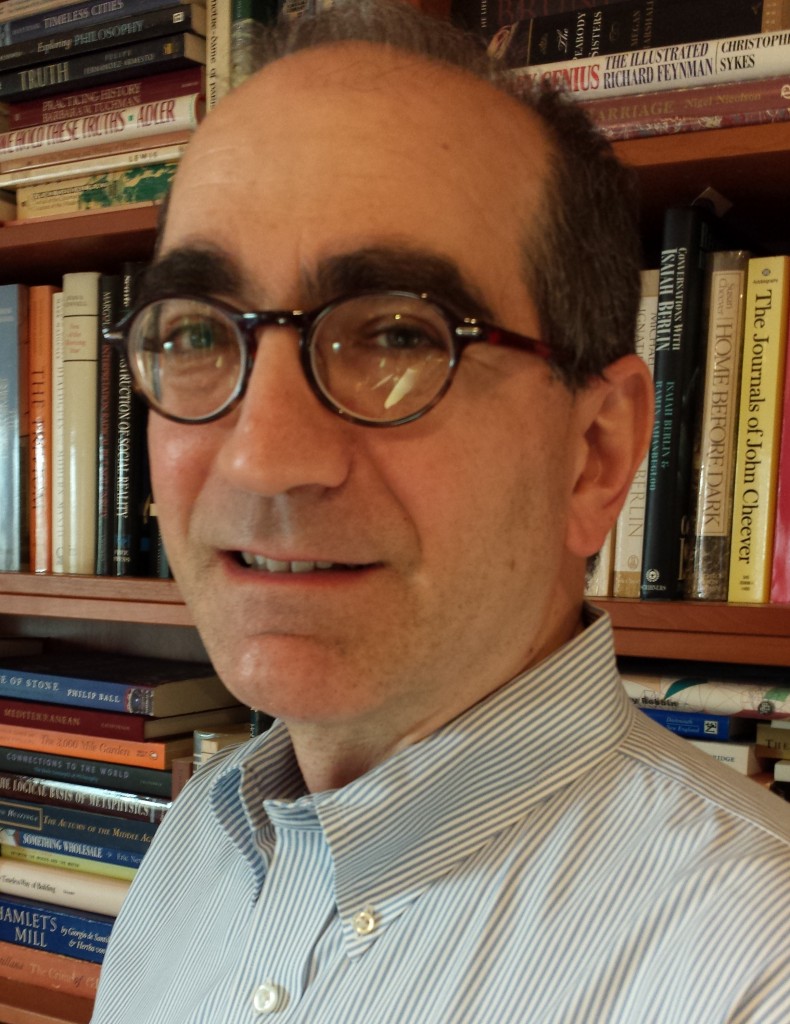
Stephen Abrams
Biography
Stephen Abrams is the associate director of the University of California Curation Center (UC3) at the California Digital Library (CDL), with responsibility for strategic planning, innovation, and technical oversight of UC3’s services, systems, and collections, including initiatives for repositories, web archiving, data management planning, and data curation. He has participated in a leadership, governing, and advisory capacity for many digital library projects and organizations, including DataONE, Federal Agencies Digital Guidelines Initiative, International Internet Preservation Consortium, ISO 19005-1 (PDF/A), Jewish Women’s Archive, JHOVE/JHOVE2, PLANETS, and the Unified Digital Format Registry, and on conference program committees for the iPRES, IS&T Archiving, and Open Repositories conferences. His most recent work focuses on economic cost modeling for long-term sustainability of digital library services and curation domain modeling. Prior to joining the CDL in 2008, Mr. Abrams was the digital library program manager at the Harvard University Library. He holds a BA in Mathematics from Boston University and an ALM in the History of Art and Architecture from Harvard University.

